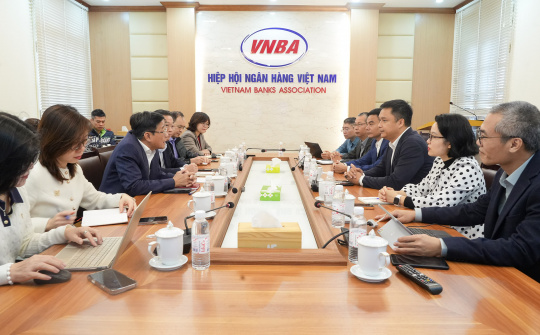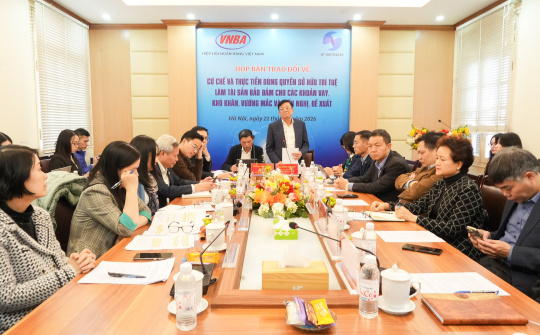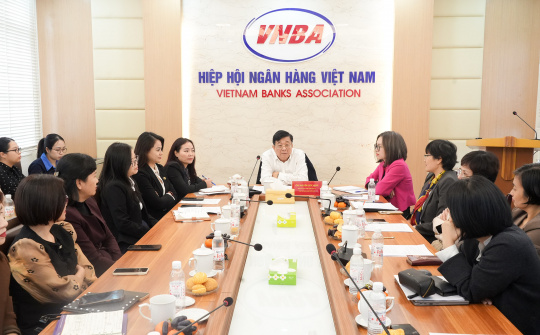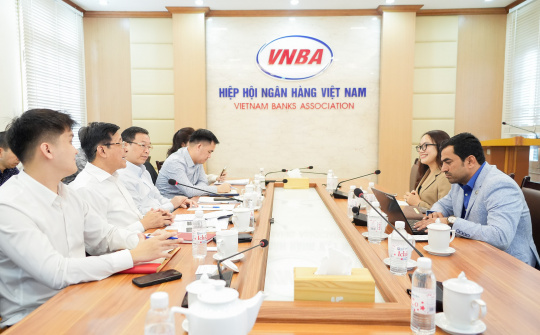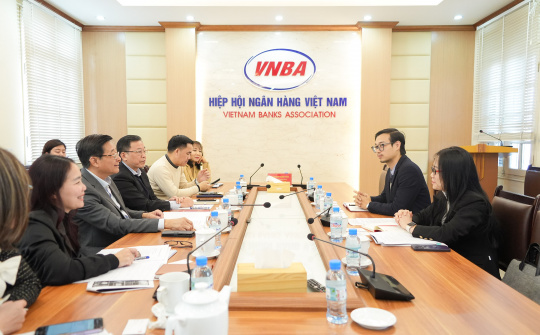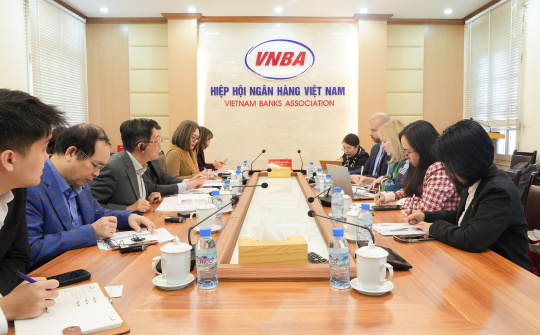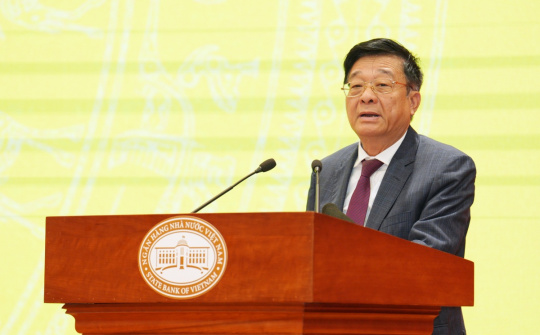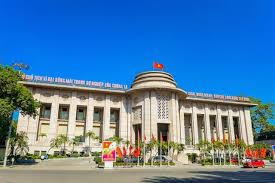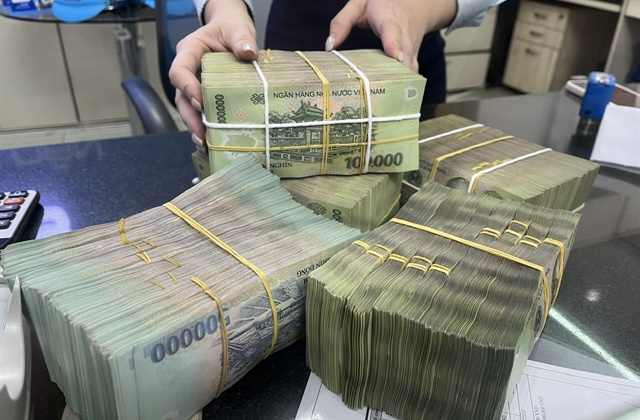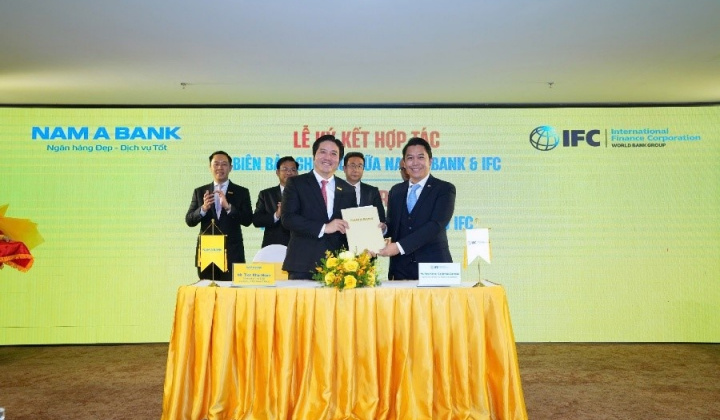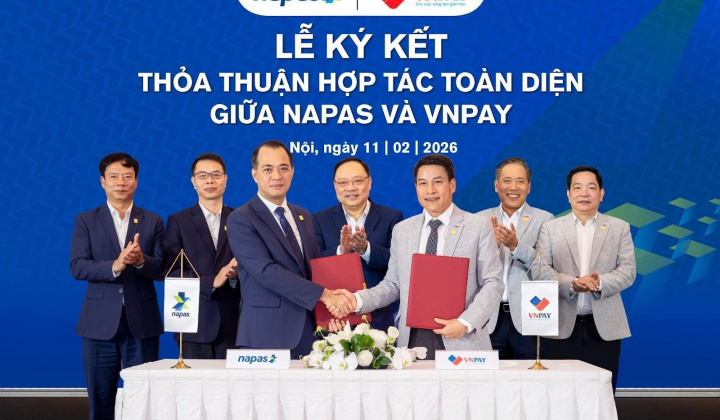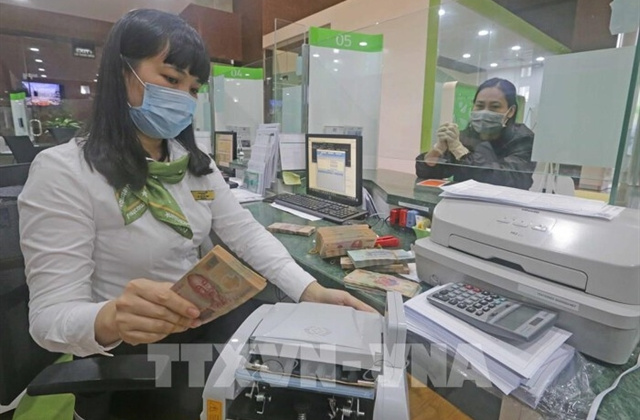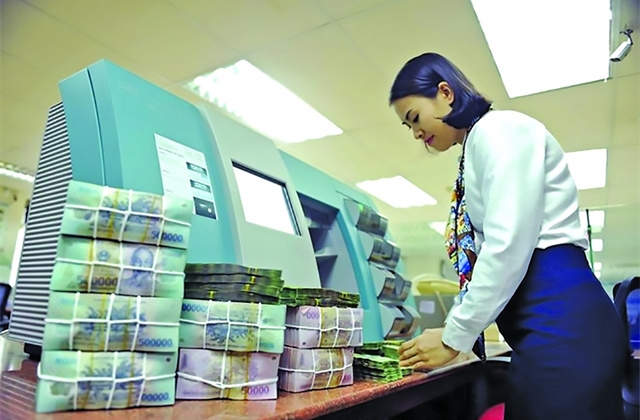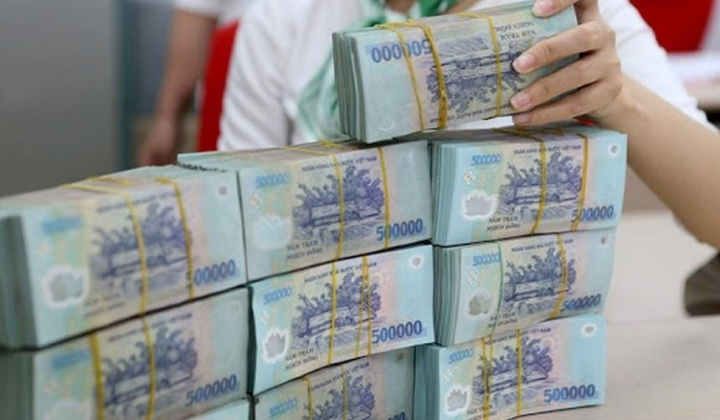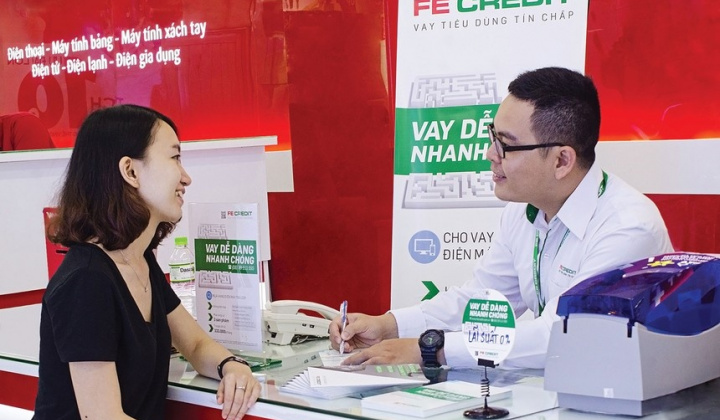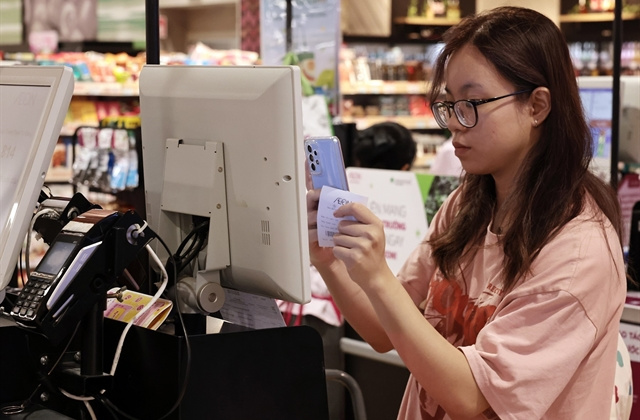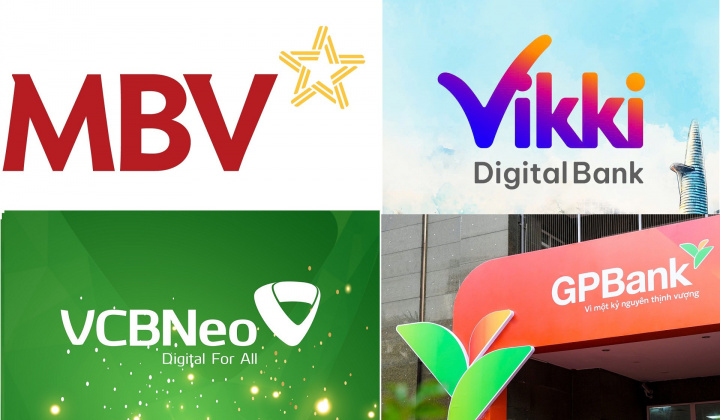Speaking at the meeting, Mr. Thomas Roger Moyes, Chief Financial Officer in charge of the financial inclusion project at the British Embassy, said that the British Government has launched the ASEAN-UK Economic Integration Program (EIP), signing cooperation agreements with all 10 ASEAN countries to support the common development of the regional economy.

Vice President cum General Secretary of the Vietnam Banks Association (VNBA) Nguyen Quoc Hung
With the experience of a long-standing developed economy, the British Government chose finance as the most important area to start when implementing the EIP in ASEAN.
"In terms of financial inclusion, this is an area where we have received many requests for support from ASEAN countries, aiming to increase access to remote customer groups, women, low-income earners, small and medium-sized enterprises... This is a segment that financial institutions often do not focus on," said Mr. Thomas Roger Moyes.
In ASEAN, Vietnam is one of the centers of the financial inclusion project that the UK Government launched in November 2024 in ASEAN. Vietnam is also one of the first countries where the project conducted a general assessment of the financial inclusion situation, thereby identifying technical requirements that the UK needs to support.
"Although ASEAN countries have different needs and characteristics, there are still common points in the field of financial inclusion. Hopefully, after conducting the assessment, we will be able to develop common technical support solutions for the region," said Mr. Thomas Roger Moyes and asked VNBA to share information to help the UK conduct the assessment.
Welcoming the sharing of project experts, at the meeting, Vice Chairman and General Secretary Nguyen Quoc Hung shared about the progress of implementing the National Financial Inclusion Strategy and the results achieved compared to the set strategic goals.
Specifically, Vietnam is aiming for the goals in the National Financial Inclusion Strategy. In recent times, the Government has developed and issued many policies related to national financial inclusion such as: Project on developing non-cash payments (TTKDTM) in Vietnam for the period 2016-2020 and the period 2021-2025; Project on improving access to banking services for the economy (Decision No. 1726/QD-TTg, dated September 5, 2016 of the Prime Minister). In particular, the National Financial Inclusion Strategy to 2025, with a vision to 2030, was approved by the Prime Minister in Decision No. 149/QD-TTg dated January 22, 2020.
After a period of implementation, ministries and branches have developed and submitted to competent authorities for promulgation many Laws, Decrees, Decisions and Circulars to create an increasingly complete and synchronous legal framework for the implementation of financial inclusion goals.
According to Vice Chairman and General Secretary Nguyen Quoc Hung, 2024 is the year when the legal corridor takes a further step towards completion, in which, notably, the Law on Credit Institutions 2024 has been issued and taken effect
The Law on Credit Institutions 2024 has amended and supplemented regulations on credit granting, simplifying procedures for small-scale credit granting; amend and supplement a number of related regulations, creating a legal corridor for the provision of banking services via electronic means.
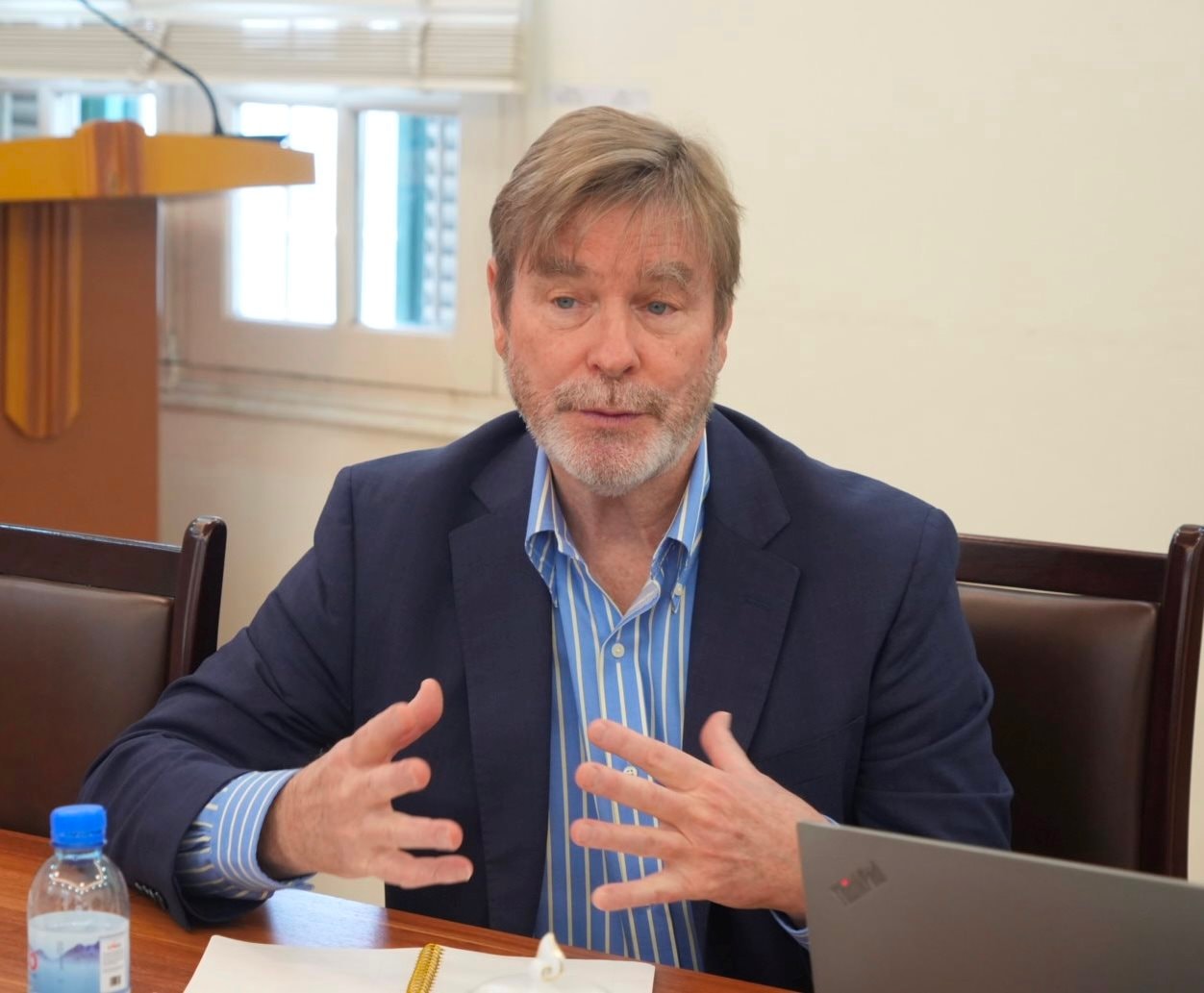
Mr. Thomas Roger Moyes, Chief Financial Officer in charge of the financial inclusion project at the British Embassy
In addition, the Law on Insurance Business (amended) has added 01 chapter on micro-insurance; the Law on Anti-Money Laundering has regulated customer identification, collection, updating, and verification of customer identification information, etc.
"The legal corridor is gradually being completed, creating conditions for customers to access loans from credit institutions with simple and convenient processes and procedures," said Mr. Nguyen Quoc Hung.
Regarding the development of financial products and services serving agricultural and rural production and business, up to now, there have been over 90 credit institutions and about 1,100 people's credit funds participating in agricultural and rural lending, with a network of branches and transaction offices spread throughout villages, rural areas, remote areas, and isolated areas, promptly meeting the capital needs for the development of this sector. In addition, the Vietnam Bank for Social Policies has promoted lending to the agricultural and rural areas, supporting production and business.
Emphasizing the results of the Cashless payment project, Mr. Nguyen Quoc Hung said that the Vietnamese commercial banking system has been and is undergoing a drastic digital transformation, being one of the leading countries in ASEAN. The interbank electronic payment system has covered all provinces and cities with 101 members and 133 member units participating in interbank payments, processing an average of more than VND 830 trillion in domestic currency payment transactions per day.
Vietnamese banks have deployed bilateral payments via QR codes with Thailand, Cambodia and Laos. In the near future, they will deploy with China, and some other countries such as Singapore and South Korea are also actively raising the issue.
In addition to the credit institution system, 51 non-bank organizations have been licensed to provide intermediary payment services; 3 telecommunications enterprises have been licensed to pilot Mobile-Money services. By the end of September 2024, the number of Mobile-Money service points established was 11,885 points, the total number of units accepting Mobile-Money payments reached 275,960 units.
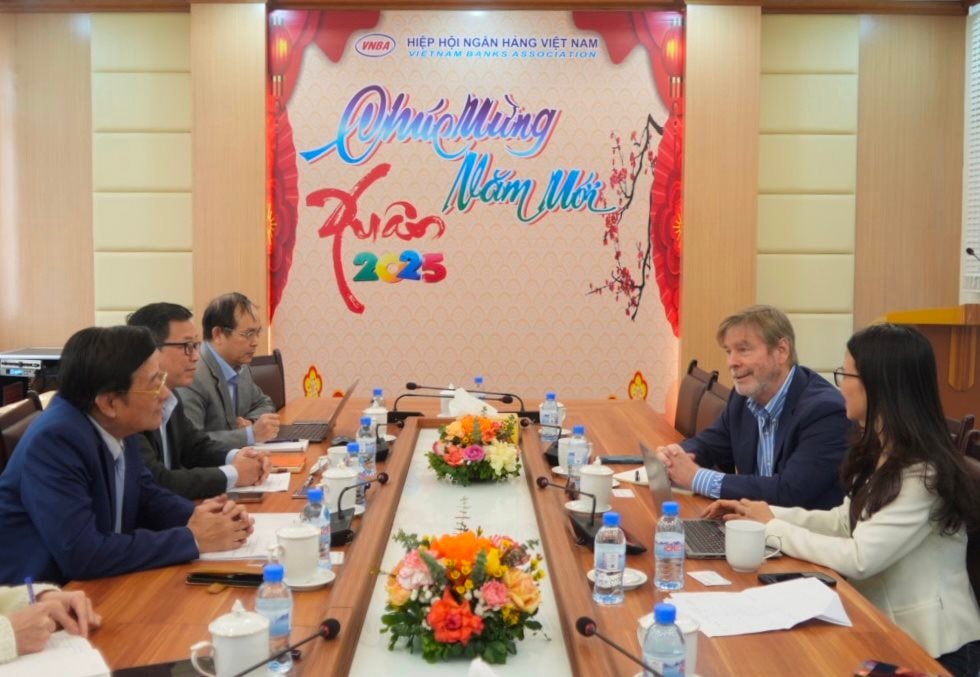
Meeting View
In addition, e-commerce has shown positive changes in the public administration sector, tax services, customs, social insurance, etc.
With a completed legal framework and a basic infrastructure system that meets requirements, the rate of e-commerce in Vietnam has grown rapidly in recent years, with a very high rate of urban people using e-commerce.
However, Vice Chairman cum General Secretary Nguyen Quoc Hung also pointed out that there are still challenges. The first challenge is that a part of people in rural, remote and isolated areas still have the habit of using cash, lack of knowledge and understanding of finance, and personal financial planning.
In addition, people's limited awareness leads to loopholes for criminals to exploit information and commit fraud.
Online consumer lending through apps has revealed many problems after a period of time...
In addition, guarantee funds and small and medium-sized enterprise development funds are not operating effectively, while there is no insurance for agricultural and rural areas, making credit institutions extremely cautious when lending.
Mr. Thomas Roger Moyes expressed his agreement with the challenges raised by Mr. Nguyen Quoc Hung that Vietnam needs to face on the path to pursuing the goal of comprehensive finance.
At the meeting, the two sides also discussed the issue of data sharing between credit institutions, the sandbox mechanism, the virtual Banking model (banks without physical presence)...
Recognizing and appreciating the detailed information shared by the Vice President cum General Secretary, Mr. Thomas Roger Moyes affirmed that this is useful and practical information to help the British Government build a basic framework for the project to develop comprehensive finance in Vietnam and the ASEAN region. Mr. Thomas Roger Moyes expressed his hope that the two sides will continue to have deeper exchanges to support Vietnam in achieving its national financial inclusion goals.
VNBA News


